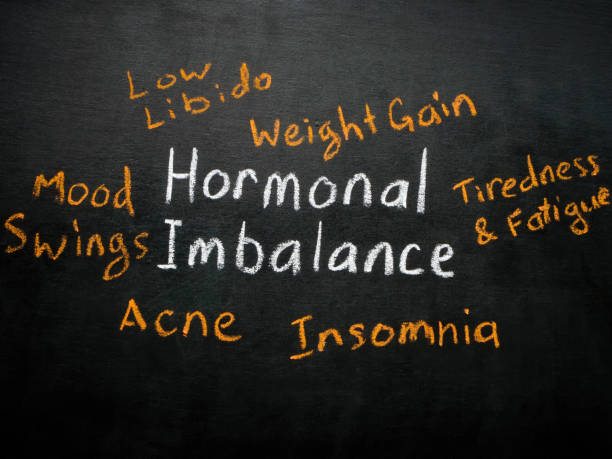Have you ever felt a decline in your desire for intimacy and wondered why? You’re not alone. Many women experience fluctuations in libido, which can affect both personal well-being and relationships. Understanding the causes and natural remedies can help bring back a fulfilling sex life without relying on medication.
Understanding Low Libido in Women
Low libido, or reduced sexual desire, is a common concern among women and can be influenced by various physical, emotional, and lifestyle factors. Addressing the root causes can help restore sexual health and overall well-being naturally.
Libido, or sexual desire, naturally fluctuates throughout a woman’s life. However, persistent low libido can impact relationships, self-esteem, and overall well-being. While medical conditions or symptoms of hormonal imbalances may require professional care, many cases stem from lifestyle, emotional, or psychological factors. Here’s a comprehensive look at common causes of low libido in women and evidence-based natural strategies to reignite desire.
Common Causes of Low Libido in Women
-
Hormonal Changes
- Menopause/Perimenopause: Declining estrogen and testosterone levels reduce vaginal lubrication and sensitivity.
- Postpartum Hormones: Post-pregnancy hormonal shifts, fatigue, and breastfeeding can suppress libido.
- Thyroid Imbalance: Hypothyroidism or hyperthyroidism disrupts hormone balance, affecting energy and desire.
-
Psychological Factors
- Stress & Anxiety: Chronic stress elevates cortisol, which suppresses sex hormones like testosterone.
- Depression: Low mood and antidepressant medications (e.g., SSRIs) often dampen sexual interest.
- Body Image Issues: Self-consciousness about physical appearance can hinder arousal.
-
Relationship Dynamics
- Emotional disconnect, unresolved conflicts, or lack of intimacy with a partner.
- Monotony in long-term relationships reducing novelty and excitement.
-
Lifestyle & Health
- Fatigue from overwork, poor sleep, or caregiving responsibilities.
- Chronic illnesses (e.g., diabetes, heart disease) or medications (e.g., birth control, blood pressure drugs).
- Sedentary habits, poor diet, or alcohol overuse.
-
Sexual Health Concerns
- Pain during sex (dyspareunia) due to vaginal dryness, endometriosis, or pelvic floor dysfunction.
- Past trauma or negative sexual experiences. For more read: Myths about Women Sexual health.

Natural Ways to Boost Libido
1. Balance Hormones with Nutrition
- Phytoestrogen-Rich Foods: Flaxseeds, soy, and legumes support estrogen balance.
- Zinc & Magnesium: Pumpkin seeds, spinach, and dark chocolate boost testosterone production.
- Omega-3s: Fatty fish, walnuts, and chia seeds improve blood flow and hormone synthesis.
2. Prioritize Stress Management
- Practice mindfulness, yoga, or deep breathing to lower cortisol.
- Engage in hobbies or creative outlets to reconnect with joy and relaxation.
3. Strengthen Emotional Intimacy
- Schedule quality time with your partner without distractions.
- Communicate openly about desires, boundaries, and emotional needs.
- Explore sensate focus exercises (non-sexual touch) to rebuild connection.
4. Exercise Regularly
- Aerobic exercise (e.g., dancing, jogging) increases endorphins and blood flow to sexual organs.
- Pelvic floor exercises (Kegels) enhance arousal and orgasmic potential.
5. Herbal & Natural Supplements
- Maca Root: Shown to improve libido and energy in some studies.
- Ashwagandha: Reduces stress and supports hormonal balance.
- Ginkgo Biloba: Enhances circulation and sexual responsiveness.
- Tribulus Terrestris: May boost testosterone and arousal.
Always consult a healthcare provider before trying supplements.
6. Improve Sleep Hygiene
- Aim for 7–9 hours of sleep nightly to restore hormone balance and energy.
- Limit screen time before bed and create a calming bedtime routine.
7. Explore Sensual Self-Care
- Use aromatherapy (e.g., ylang-ylang, sandalwood) to set a sensual mood.
- Experiment with massage oils or lubricants to enhance physical pleasure.
- Read erotic literature or watch content that sparks arousal.
8. Address Underlying Health Issues
- Treat vaginal dryness and vaginal ador with water-based lubricants or hyaluronic acid gels.
- Seek therapy for trauma, anxiety, or body image concerns.
When to Seek Professional Help
If low libido persists despite lifestyle changes, consult a healthcare provider to rule out:
- Hormonal imbalances (e.g., thyroid dysfunction, PCOS).
- Side effects of medications.
- Mental health conditions like depression or PTSD.
A sex therapist or counselor can also help address emotional blocks or relationship challenges.
Low libido is a common and treatable issue. By nurturing physical health, emotional well-being, and relational intimacy, many women can rediscover their sexual vitality. Patience, self-compassion, and open communication with partners are key. Remember, sexual desire thrives in an environment of trust, pleasure, and holistic wellness.
Boost Your Libido Naturally with Provestra
If you’re looking for a natural and effective way to enhance your sexual wellness, Provestrahealth can help. Formulated with a blend of herbs, vitamins, and nutrients, Provestra is a libido boosting supplement that supports hormonal balance, increases blood flow, and helps reignite your passion. Take the first step toward revitalizing your intimate health today.

